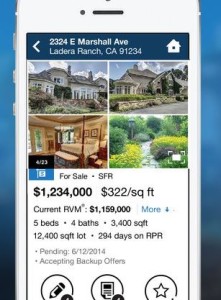Recently I conducted a boring little exercise. I sat down and read through 200 Zillow reviews. It wasn’t scientific, it wasn’t very organized I just jumped around from market to market reading good and bad reviews from a variety of different agents/teams.
My purpose? Lots of people can sell real estate (at least one deal), but what does it take to be highly recommended? More importantly what are the words people use to describe agents they are most likely to recommend? I wanted to identify these words, look for patterns, and consider what technology can help a sales agent exhibit those qualities.
Survey Says…
Here’s the short list of words and patterns I saw most commonly used.
- Details / Detail Oriented
- Organized
- Knowledgeable / Local Knowledge
- All the extras
- “Kept me calm”
- “Overcame Hurdles”
- “made it very easy”
- Professional
- Always Available
If you’re currently involved in any form of sales profession none of the above should be a surprise. The people want a pro; not an amateur. People want someone who is confident in the process, knows what they are doing, and is a shoulder to lean on. The home buying/selling process is not very complicated, but it’s not simple either. Shit happens; there are potential deal killers around every corner, and the best RE pro’s are often the ones who are seen as able to overcome adversity with ease.
So now that we know the qualities of a highly recommended sales agent; what can we do to make sure we exhibit the above qualities?
Build Complete and Accessible Database Profiles:
Details and organization basically go hand in hand. These two even have a lot to do with whether or not an agent is perceived to be professional. There is a LOT of tech out there that want’s your money, and just as many opinions on whats best as there are agents. I’m not going to make recommendations so we can focus on how to use the technology properly.
Profile Descriptions: Stupid simple, and highly underutilized. Here’s an example… Find a contact in your phone you haven’t spoken with in over 1 year. Now can you answer…
- Who is this person?
- How did we meet?
- Married? Single? Kids?
- What type of home do they live in?
- When did they last buy/sell?
- Where do they work and what do they like to do?
The more distant the relationship the harder it is to answer these questions. The longer between the time you last spoke the harder it becomes to remember. Start throwing hundreds of online leads into that database that we’ve never spoken with, and suddenly things get very tough to keep track of.
This is why when we discover any form of attribute about a person that would be relevant in a future conversation business or personal we need to take the action of adding it to their “description” in our database. (Fact: All CRM’s on the market, and your iphone have this feature. no excuses). Descriptions also don’t have to be limited to just words. They can be pictures, social media profile links, etc.
Get It On Your Phone: Note taking is a tedious process even with the best tech. Some naturally are great at it, and others struggle. (I do) Accessibility however is what evens out the playing field. We can write down every little thing we know about a person, but what good is it if when they call us we can’t find it? Or it’s just too much to read? Again this is where mobile technology is making us all faster, and better at what we do. We must make sure that whatever notes/descriptions we have on leads or past clients are accessible on our mobile device otherwise it’s worthless.
Communication Logging:
Want to look like an unorganized ass? Forget to call someone back. Again the higher the lead volume, the further the distance, the harder it becomes to keep track in our heads. This is why technology that allows us to log any, and all communications is extremely important. Sometimes we can automate the process other times it requires a manual entry. Either way the important thing is again that we have a system for logging, and that the information is easily accessible.
Josh Cunningham from Rokrbox came to our office recently, and discussed how his very organized team of ISA’s handles outbound calling for our clients. One thing his team does that really stuck with me was after every single call they log what they need to talk about next. That’s a tiny detail that can make a big impact. Half the reason we scan our brains to remember what we talked about before is so we can speak in the present. Pick up this tactic, and make it a habit. Make sure that you not only log communications you’ve made, but you’re also scheduling future ones with a topic or goal in mind. This allows us to avoid dialing a prospect only to say “soooo just wanted check in…”
Use RPR!
Realtors Property Resource is a freaking kick ass tool! One of those qualities we talked about before “Local knowledge” RPR takes care of a big portion of that, and it’s available on your mobile device. I’ve heard from colleagues that RPR is a pretty underutilized resource, which frankly blows my mind.
Nothing is going to replace actually having local knowledge of what it’s like to live in a particular area, but again having all those stats and details in your head about every house on the block isn’t easy to do. When speaking with a past client or current prospect how quickly can you give them all the info they need? Again the key here is a balance between deep knowledge, and accessibility. Every time we have to say “let get back to you on that” we set ourselves up to leave the conversation, which is always a deal killer.
I’m not going to go into details on RPR tactics for this post, but I will simply recommend that you…
- Take the time to explore RPR’s tools
- Practice using them
- Practice using them with a script!
We already practice handling objections, but how often have you sat down to practice with your phone “oh that house on 123 street? Let me pull those numbers for you” The same way a pro mechanic can pick up a tool, and start using it like it’s supposed to is what your clients expect of you when it comes to tools like RPR. Fumble with it, and you’ll look foolish. Get the info they wanted quickly, and you’ll look like a star.
This applies to all of the things we’ve discussed above. Practice, practice, practice not just what you’re going to say, but what your going to do while on the phone or in person. Go through the motions, build the reports, pull the data, and you no doubt you’ll continuously find ways to improve your process.



Recent Comments